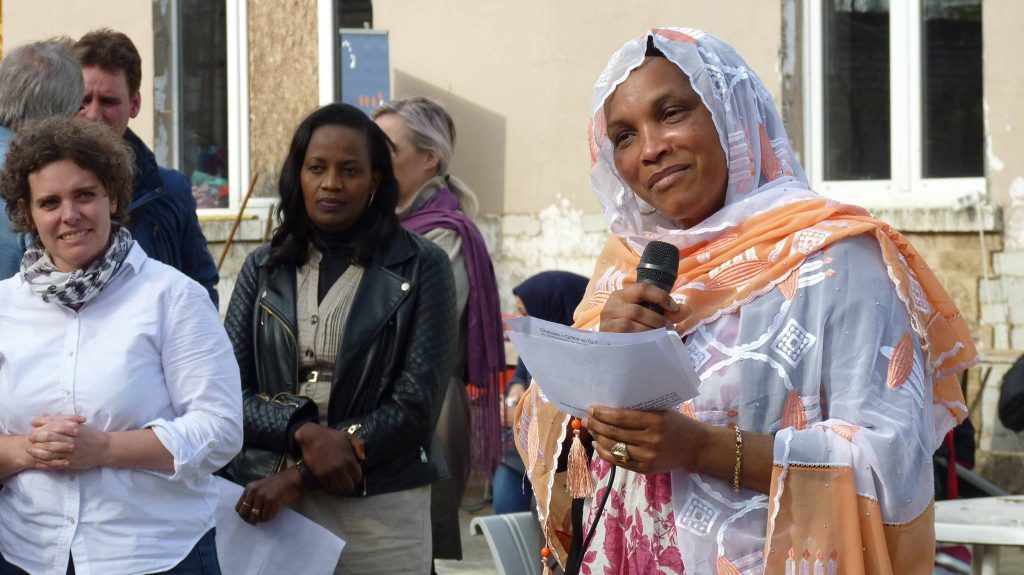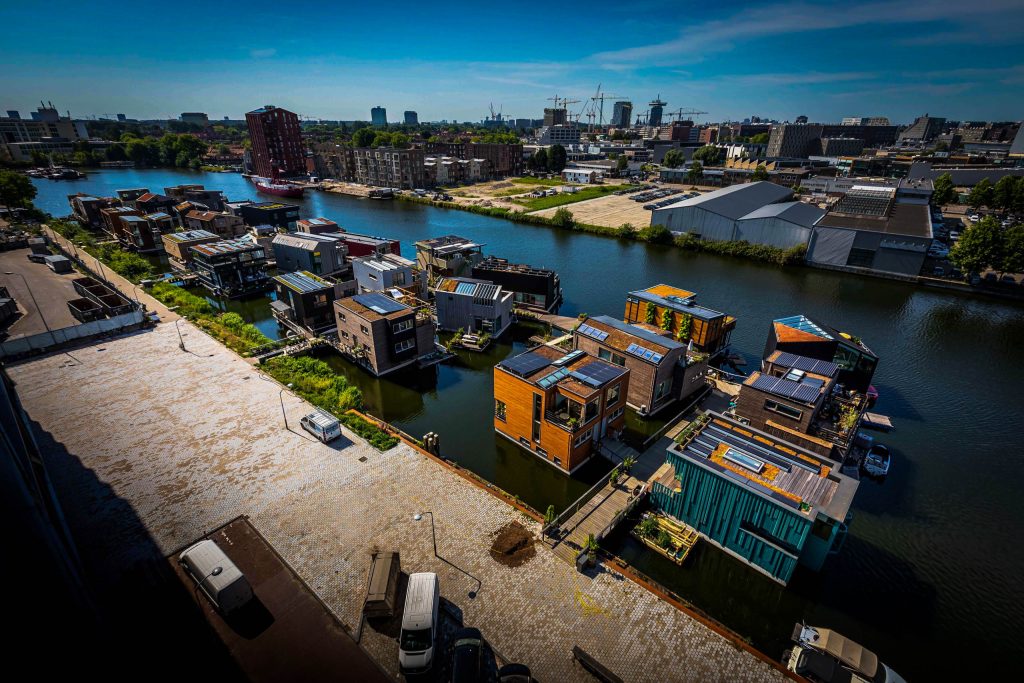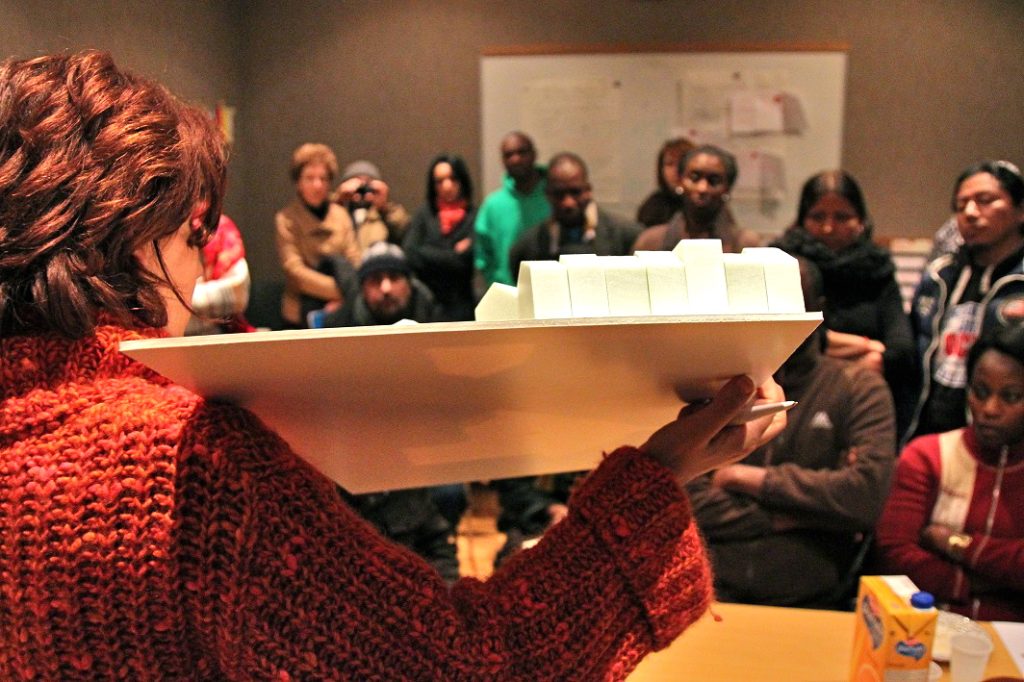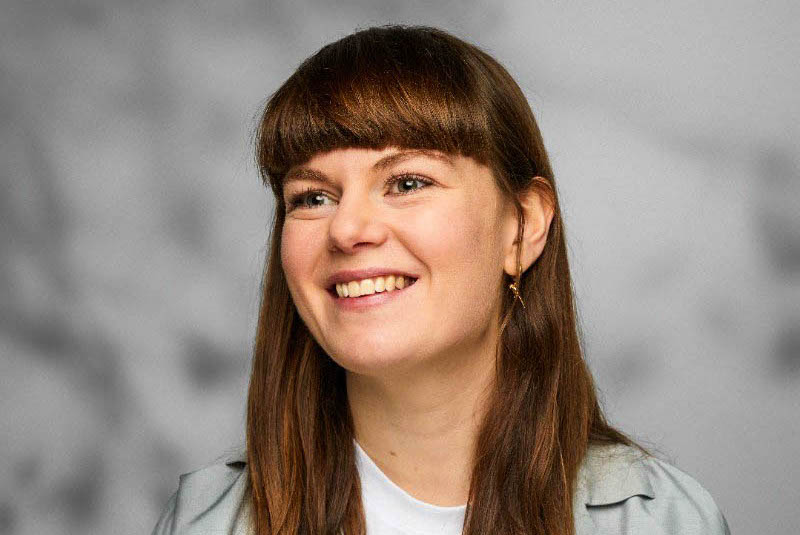What does a city of the future look like? For Alice Haugh, it is a regenerative and inclusive built environment that supports wellbeing and equality. In her work with the global philanthropic institution, Laudes Foundation, she explores new economic models and how changing the way we live, work, and do business can lead the transition towards decarbonisation in a way that brings all voices to the table.
Economic-centred inequity impacts communities in ways we rarely imagine.
As a native Londoner, having grown up in the diverse neighbourhood of Mile End, Alice Haugh is hard-wired to appreciate demographically diverse communities, but these are often some of the hardest hit by change.
Neighbourhood development or regeneration projects can, for example, raise property values, often meaning people can no longer afford to stay, Alice tells us. If we’re not careful, decarbonising our cities could lead in the same direction. Our CityChanger is determined not to let that happen.
Knowledge is Power… to Change
How climate change relates to the built environment was, says Alice, “still a fairly nascent conversation” when she studied architecture in the early 2010s.
After practicing in the field, Alice founded the In-Between Economies think tank, and led research and strategy teams within UN Studio and Space&Matter architects in Amsterdam.
In 2012, she worked as a designer on the Olympic Park for the London Legacy Development Corporation. Involving the local communities that surrounded the site of such a huge scale, complex, and contested regeneration project in a centuries-old part of the city was a major challenge. Alice began to see that the public-private partnership model embedded the housing crisis in the very social fabric of cities, making it intrinsically difficult to solve. Inequity, climate breakdown, and economics based on resource extraction are closely connected problems.
Alice believes that a new narrative for change is needed.
“If we can’t articulate and ultimately deliver the benefits of the transition to people who need to vote for climate policy and who will live in decarbonised buildings in the future, then we will fail, because people will stand against it.”
Hitting European climate targets depends on our ability to decarbonise the built environment quickly and equitably. The scale and speed at which processes like renovation and retrofit need to be rolled out necessitates going way beyond business-as-usual development practices.
The Laudes Work
Alice’s ethos, objectives, and expertise fit right in at Laudes Foundation.
Laudes believes it is crucial to support new economic models which prioritise equity, new approaches to affordable housing, and the circular economy. And it promotes the philosophy that communities need to be in the driving seat if we’ve got any chance of succeeding.
This private philanthropic foundation operates on a global scale, with the work of its Built Environment Team – which Alice joined in 2021 – currently focussed on the EU, Norway, Switzerland, and the UK.
Alice tells CityChangers that Laudes works with and through business to help it be a force for good in addressing the interwoven challenges of social inequality and climate crises, which are “the visible manifestations of a broken economic system”. Her MO is to:
- “support brave action, especially from industry”,
- tackle the challenges, raise awareness, and push for process and policy change across the domains of finance, policy, materials, and communities,
- accelerate widespread change by convening and collaborating with the bodies pushing to scale up these ideas.
To achieve this, Laudes supports entities “going above and beyond the status quo in terms of how we build buildings and build neighbourhoods,” Alice tells us. One way they do this is by supporting initiatives with grants, but Alice’s day-to-day work is more hands-on.
She supports partners who build frameworks that enable investors to track their buildings’ environmental impact, and identifies projects, systems, and organisations trying out experimental, alternative models of land and building investment and development, community ownership, and material use.

Barriers to Brave Action
Revolutionary new processes often falter because of a reluctance to alter established systems.
The EU’s renovation wave, for example, is designed to give us all better quality, healthier, more comfortable homes and lower energy bills. However, retrofitting presents challenges of its own.
For one, Alice says: “There’s a huge funding gap to do that work. And the delivery at the local level is enormously challenging: how do you get people to agree and to support and to actively take part in renovation and retrofit work, which is deeply unsexy?”
Residents’ rights are also up for grabs. “Renovation is an expensive process,” our CityChanger stresses, adding that she knows of cases where building owners use the premise of retrofitting to encourage low-income tenants to temporarily vacate, only to refuse their return. “If there are not strong policy levers in place to protect people, then there are also big risks.”
Even if we upgrade to energy-efficient properties, there’s the stubborn stain of embodied carbon; the emissions not from operational processes, like heating our homes, but the processes of manufacturing concrete, bricks, and steel.
Construction materials and their raw components are often sourced and processed in developing nations. Although this offers an “abundance of potential for renewable energy to fuel those industries”, the relocation of employment has a knock-on impact for the places industry abandons.
We hear a lot about the new jobs a green future can offer, but Alice suggests that these need to be of equal or better quality, pay, and location as those they replace.

New Economic Models
Traditional funding models are a sticking point to progress. Cautious attitudes towards lending means that banks are not comfortable with handing out mortgages to a collective of landowners. Even so, municipalities from across Europe – like those showcased by the International Social Housing Festival – are developing supportive infrastructures to enable cooperative and community-led housing models that move towards a new public-civic-private model. While not new, this is a movement regaining popularity in Europe, Alice points out. And with positive consequences:
“When you have communally-owned land and buildings, you have an incentive to share resources, and also to take care of the buildings that people own together.”
That leads to less waste, more resource reuse, reduced mineral extraction, and better maintained, more resilient buildings: all good for society and the natural world.
Alice cites success stories like Space&Matter’s Schoonschip, a series of community-owned floating homes in Amsterdam. Solar panels on each unit form an interconnected power grid making the community self-sufficient.

To embed better practices further, Laudes works with organisations like Building and Woodworkers International, the global federation of building and woodworkers unions, and the Just Transitions collaboration between the Institute for Human Rights and Business (IHRB) and International Union of Tenants (IUT). By offering expert and financial support to this work, Laudes aims to discover what a just transition in European cities actually looks like. Significantly, it includes the voices of workers and residents. As Alice points out, “we see those two as key groups to support in the transition”.
And yet, until now that has been a “critically missing” narrative. Climate experts are feverishly working on technical roadmaps to decarbonise buildings, steel, and cement while advocates are simultaneously pushing for housing affordability and rights. Sadly, the two sides aren’t yet talking.
“Technical solutions are many and widely available. But how those technical solutions should be played out is a socio-cultural challenge.”
To counteract this trend, Alice works with what she describes as a spectrum of “change agents” such as policymakers, businesses, investors, workers, and communities to bring these two sides together and form a coherent, combined narrative.

Signs of Progress
While philanthropy around the climate question is still relatively young, Laudes has already seen impact from its work.
When the European Commission drafted the Energy Performance of Buildings Directive (EPBD) policy, Laudes supported think tanks, researchers, and advocacy organisations “to put pressure on the EU Commission to include embodied carbon”. While the policy “was originally intended only to include operational carbon”, the scope is widening in line with Laudes’ mission. Alice adds that social protections for renovation policies are also being proposed.
Commencing in 2020, the Built Environment Team also supported IHRB to produce the Dignity by Design guidance for architects, developers, and investors. This “has become the go-to framework for considering human rights in the built environment”, says our CityChanger. It ensures greater accountability for workers’ rights infringements in the entire building lifecycle, from material extraction through processing, to the construction site.
“The fact that people are picking that up and starting to use it is really promising.”
Over to You
This momentum needs to flourish. Alice wishes to build on these successes by soliciting new partnerships to work on ideas about:
- Innovative economic models for investment in and ownership of buildings and land.
- Building an alternative, inclusive paradigm for the built environment.
- Amplifying the voices of residents and workers “to play an active role in the climate transition” through network-building.
- What a just transition of the built environment could be, how to get people excited about it, and engaging them in the process with the right language, narratives, stories, and visuals.
Organisations keen to find out more are encouraged to get in touch via email or social media using the links on the Laudes website.


